|
I discovered Bohemian Rhapsody when I was six years old. Around the same time, I discovered I could carry a tune. Or I imagined I could carry one, anyway. You'll have to ask my (very tolerant) family members for their opinion. I'm sure they'll give you the unbiased truth. Whether or not I was any good at singing, after that day, you couldn't shut me up if you tried. I had found my calling. I would grow up to become a professional singer. I learned every single word to Queen's Greatest Hits album, of course, but I didn't discriminate. Small town Missouri doesn't exist without country music, and so I made quick work of adding Randy Travis and The Judds to my catalog. My parents listened to rock in the car (I almost said classic rock, but it wasn't classic back then!), and in went Aerosmith and John Fogerty. During P.E. in middle school, my friends and I would sing Green Day songs as we did our jogging warmup. In high school, we would take over one of the classrooms to sing sad, sappy Jewel songs in floppy harmony. I sang in the car. I sang at work. I sang in the aisles of the grocery store. I'm sure my compulsive vocalizations caused their fair share of annoyance, but most people were kind enough not to say anything. "You've got a great voice," someone would occasionally say. "Thanks," I'd say with a grin, my heart swelling with validation. Breaking news: I didn't become a professional singer. I graduated from college and went into Teach For America and moved to California and made a bunch of cool friends who did crazy things like leave the house on the weekends - something to which I was wholly unaccustomed. I'd never been to many bars - I'd graduated college at 20, and ID requirements in Boston were strict. But here I was, a 22-year-old with a group of twentysomething friends doing what people like us apparently did on Friday nights: go to the bar. And at one of these bars, there was a sign, written on the chalkboard over the stairs to the lower level. Karaoke tonight. ↘️ "Karaoke! I love karaoke," said Christina. "You should totally sing," said Rachele. My heart exploded for a second. I'd never held a microphone in my life. I couldn't imagine standing in front of all these people, whose attention would surely be concentrated squarely on me, and doing ... what, the exact same thing I did every other day? Meh, what the hell. I grabbed a song book and a quarter-page slip of paper and a golf pencil and retreated into a corner of the bar to pick my song. See, here's the thing about karaoke: you can know every word to every single song on the planet, and the minute you get the coveted karaoke book in your hands (Do you want "By Title" or "By Artist?" Big decision!) your mind becomes applesauce. I must have sat for half an hour with that book in my lap, flipping through and trying to find literally any song whose tune I knew well enough to sing it. And, finally, I found it. Killing me Softly by the Fugees. I loved that song! "Nicci, you're up," said the DJ and then he whispered in my ear, "The Fugees version is scratched. Is it OK if you do Roberta?" I nodded enthusiastically. I'd been watching a lot of Hugh Grant's "About a Boy" at the time. Not to spoil anything, but there's a lot of "Killing me Softly" going on in that film. I could definitely do this. But when the music started, I realized something. I'd heard this song a thousand times, but I didn't actually know it. I knew none of the words, or how they went with the music. So I just stood there, mumbling and trying not to cry, with the redness creeping from my chest all the way to the top of my forehead, until the song was over. The only consolation is that, aside from my friends, everyone in the bar was so busy with their drinks and conversations, my colossal embarrassment didn't even register. I spent the next five years seeking redemption for that failure of an outing. The pub down the street from our apartment had karaoke every Sunday night, and my friends and I would venture out when there was a Monday holiday. We pushed through throngs of sweaty 40-year-olds to play tug-of-war with the song books and put in four requests at once. I built up a list of go-tos, sometimes singing duets with my friends, the regulars, or the host. Roberta Flack's version of Killing Me Softly made the cut, but only after I'd sung it a thousand times alone in my car. Eventually my friends and I became the regulars. We found other singing spots, too. We knew who had the best catalog and who was using digital equipment instead of CDs. My bachelorette party even contained a stop at a karaoke bar, and somewhere, there exists a terrible-quality mp3 commemorating the occasion. That was all before gender reveal parties and school drop-offs, when Monday holidays meant we could sleep it off until noon and wake up with a Bloody Mary and go hunting for a fried-ass breakfast. Fast forward to 2016. I was a mom and a school administrator living in Boston. Even if I'd known where to find karaoke, only in my dreams would I have been able to go sing. But it was February, and I was off the coast of the Dominican Republic. On a cruise ship. Hear me out. I know literally zero people who would dream of getting onto a floating petri dish with a few thousand strangers in 2022. But remember, this was years ago, and Sail Across the Sun was not just any cruise - it was a music cruise with multiple concerts every day. The smallest ones contained only a couple dozen folks, and you got to meet and chat with the artists between sets. If you arrived early enough to the biggest ones, you could get a spot right next to the stage. And, of, course, there was karaoke. More than ten years after my first embarrassing showing, I found myself descending another set of stairs into a huge lounge with a stage at the front. From there, it was all muscle memory. I didn't need to spend a half-hour thumbing through the book: I knew exactly what I would sing. And before I could finish my first drink, I was up. At first, my fellow travelers sipped their drinks and kept on with their conversations. With the first chorus, though, things changed. Heads turned and eyebrows raised. People started moving and singing along. "All right!" someone said. By the last note, the area around the stage was packed. The applause was like a warm, validating hug. I turned to leave the stage and was face to face with the lead signer of the biggest band there - someone whose voice and whose music had moved me through two decades. "That was fucking awesome," he said to me. "You have an amazing voice." If I hadn't already slid the mic back into the stand, I would have dropped it right there. Because what better way to cap off my karaoke reunion tour than with a hug and an endorsement from my favorite artist? Subscribers to my newsletter this week will get even more fun karaoke stuff like my song list and some embarrassing photos from those days, if I can dig them up. Don't forget to sign up using the form on this page or by clicking here!
3 Comments
Last week, we talked about the film, Avatar, and how it is essentially an intergalactic retelling of the indigenous genocide that has happened repeatedly in society's history. Midway through writing that post, I found myself off on a tangent about language. After a half-hour of writing, I realized the whole diatribe was a separate idea that deserved to be treated in its own post, so I clipped it and saved it for this week.
The point: The language we use to talk about people can serve either to bring us together or push us apart. This othering language is clear in Avatar, but it's also present in many other spaces. I probably wouldn't have known to frame it in this way if I hadn't recently read Brené Brown's post on dehumanizing language, but now that I've seen it I notice it everywhere. Listen to how the Colonel describes the Na'vi in the film. He uses words like savages and blue monkeys, summarizing their customs by saying, "We tried to give them medicine, education, roads, but they like mud." The purpose of using this kind of language is to dehumanize the enemy so you feel better about doing all the horrific things you're about to do to them. In the context of the film, the Colonel needs to other the native population in order to feel justified in forcing them out of the area, destroying the land they call home, and ultimately killing them. The more he separates the Na'vi from the humans, the more the rest of the team is encouraged to do the same, and the more easily they can convince themselves their mission is acceptable - nay, laudable. But, of course, this tactic reaches much farther than a little film from twelve years ago. Colonizers and enslavers consistently used this kind of dehumanizing language to view those they systematically murdered and forced out of their homes as less than human. If the "Indians" were "savages," if Africans were "primitive," if these people could be seen as animals incapable of reasoning rather than strong humans with a sophisticated religious and social structure (albeit different from what the Europeans were used to) then it would be easier to conquer them using otherwise unthinkable actions. As Michelle Maiese (quoted by Brown in the above article) says, this has the effect of making others "seem less than human and hence not worthy of humane treatment." The colonizers died hundreds of years ago, but this kind of othering language and imagery extends in both directions. From biblical interpretations that dehumanize members of the LGBTQIA+ community, to Nazi propaganda that showed Jews at rats, to our former president's use of words like "dog," "animal," and "infest" to describe his opponents or immigrants, to the language used by people in some online groups like "libtards" and "lemmings," we use this language either consciously or unconsciously to separate our targets from ourselves. And it's become ever easier to do this in the age of the internet, when we can sling insults back and forth without even having to look people in the face. This type of shorthand only serves to drive further wedges between us and the people who don't share our beliefs. In these fraught times, particularly in the USA but also in many other parts of the globe, we are in real danger of shriveling into self-contained pods with no meaningful contact, each viewing the others as less than human - thus fueling a self-feeding cycle of dehumanization and misunderstanding. How can we get out of this dilemma? The same way we got into it: Language. Recognize when you or someone else is using words that serve to separate another group from yours. Change your framework. Consider that most people are doing the best they can, making the best decisions they know how, with the information they have. Seek to understand people who are different from you, and help them understand you and the experiences that have shaped your beliefs. Even if you think you know what they're all about, and even if you are certain neither of your beliefs will change, it's likely that by asking and answering questions, you'll learn more about the wide range of experiences people in this world have. Chances are good that you'll both walk away with a more human view of the other. And this is what we need more of in this ever-evolving, interconnected world. Not more hatred and alienation. More understanding, please. More humanity. I promise, we'll all be better for it. This is probably old news to some of you, and so I apologize in advance for being (*checks watch*) 12 years behind the times. Ahead of the upcoming sequel scheduled to be released in late 2022, though, many of you might consider rewatching the original Avatar film. If and when you do, you'll probably notice all the things I'm going to mention here, and more.
Avatar came out the year I moved from the Bay Area back to New England, and I'm positive I watched it. I had been working professionally for five years. I wasn't exactly a child. So I'm not sure what reason I have not to have noticed it the first time around: This movie is basically just an interplanetary retelling of the systematic genocide of indigenous populations. The film was long. Maybe I fell asleep. I don't remember much of it. It didn't affect me at the time. But then, a decade later, I took my kids to Disney World. The Animal Kingdom theme park had recently opened Pandora, the world in which the movie Avatar takes place, and let me tell you - that place is magical. There are a couple really great rides based on the movie, but also there's just a sense of peace you get in Pandora that I want to bottle up and take with me. All the fictional plants from the film are represented, and the place is so immersive. I'm swooning just thinking about it. When we got home, I decided to take another look at the film, and what I saw was a hauntingly familiar story. People show up in an unfamiliar land. They find some valuable natural resources there. Only problem is, there is an entire civilization living atop those natural resources. So what do they do? They study the inhabitants, the Na'vi. They send a few emissaries to build relationships. The job of these emissaries is to convince the Na'vi to leave the only home they've ever known. And when the Na'vi refuse to move, the people decide to go full scorched earth, destroying the world and taking what they want anyway. Reminds me of the "explorers" who decided anything they found during their explorations belonged to them. Land, where indigenous people had lived for generations, taken in the name of a country with an entirely different view of humans' place in the world. Men judging the behaviors of people they didn't understand, convincing themselves they were superior so they could justify murdering the indigenous population, destroying their home and sacred artifacts, and (in the case of colonizers here on earth) enslaving them. If the colonizers were ignorant (and I don't believe they were) the humans in Avatar knew exactly what they were doing. As Giovanni Ribisi's character, Parker Selfridge, put it, "Killing the indigenous looks bad, but there's one things shareholders hate more than bad press and that's a bad quarterly statement." In other words, the murder of an entire civilization and destruction of their homeland is justified as long as someone else gets rich. The parallels just don't stop. I'm going to admit something here. I was always horrible at reading tests in school. Part of the reason is that I never understood the difference between theme and main idea. Only after becoming a writer, writing a bunch of stuff, and then having to rewrite it so it collected logically around a theme, did I come to understand what a theme is and why it's important. And now I can't unsee them - in books and movies, but also in real life. Themes of oppressing others to get yourself rich seem to be recurring quite literally everywhere these days. Right there alongside the repetition of history that celebrates individualism above all else, creating a world where people view happiness and prosperity like pie: If my neighbor gets a piece of it, there's not as much left for me. It's greed, pure and simple. And it makes me wonder what allegory the sequel will bring. Have you seen any movies lately that are allegories for things that have really happened? How have they helped you understand the world? Back in early 2019, I found myself in an interesting situation. I had written a book, and I was super proud of myself. I also knew the book was terrible (as all first drafts are) and I needed help making it less terrible.
I found a resource where I could meet with a bookish-type person who could review the manuscript, give me feedback on marketability, and advise me on how I might go about getting my book baby out into the world. I chose someone from the list who looked kind and gentle, and I sent her an email. We didn't end up working together (I ended up getting into the Ultimate Novel Writing Course, in which my tutor, Amanda, gave me exactly what I needed), but I did get a few useful nuggets out of our brief correspondence. Two words that stood out most strongly were feminist dystopia. I hadn't yet gotten to the point where I'd considered the genre into which my book would fit, but here it was, wrapped up in a neat little bow by someone who had only read a one-page synopsis of the 85,000-word book. It's possible you haven't heard of feminist dystopia before. I hadn't either, but once the words were spoken it became pretty easy to backward-map them onto something with which I was already familiar: The Handmaid's Tale. I hadn't yet read this book, released in 1985 by Margaret Atwood, but I certainly had binged the series. Try as I might, though, I couldn't think of any more books in the genre. After many searches, I've compiled a list of such books. I've read them all, for enjoyment as well as to educate myself in the feminist dystopia genre so I can know what makes my own novel stand out. It will be a bit still before The Other Women is on shelves, and so in the meantime I wanted to pass the list along to you. If you enjoyed The Handmaid's Tale, or if you’re one of my lucky beta readers* who read and enjoyed your advance copy of The Other Women, you will likely enjoy these as well. Just a note that these are affiliate links, so if you happen to click and buy one of these books, it won’t cost you any more but I may earn a small portion of the sale.
There it is! These are the books I've been able to find in the feminist dystopia genre. Something I've noticed in my reading is that many of these books are written in the first person and are journal-like, if not written as actual journals or diaries. Often the name characters are nameless. This mechanic helps tell the story, particularly in The Handmaid's Tale, where women are stripped of their names and become property of their Commander, and in Book of the Unnamed Midwife, in which the main character takes on whatever name is suitable for the situation in which she finds herself. I'm going to keep searching high and low for more feminist dystopian fiction, but it's hard to find these books out there - which is good news! This means there are plenty of stories left to tell. Have you read any of these books? Do you know of any other feminist dystopia books that should be on the list? Let me know in the comments. *VIPs get cool stuff like deleted scenes and the opportunity to beta-read my books, along with a wheelbarrow full of other cool stuff. If you're not a VIP yet, don't forget to snag your first deleted scene from The Other Women, my upcoming contribution to the feminist dystopia genre. |
Nicci KadilakI'm the boss around here.
Archives
January 2023
Categories
All
|

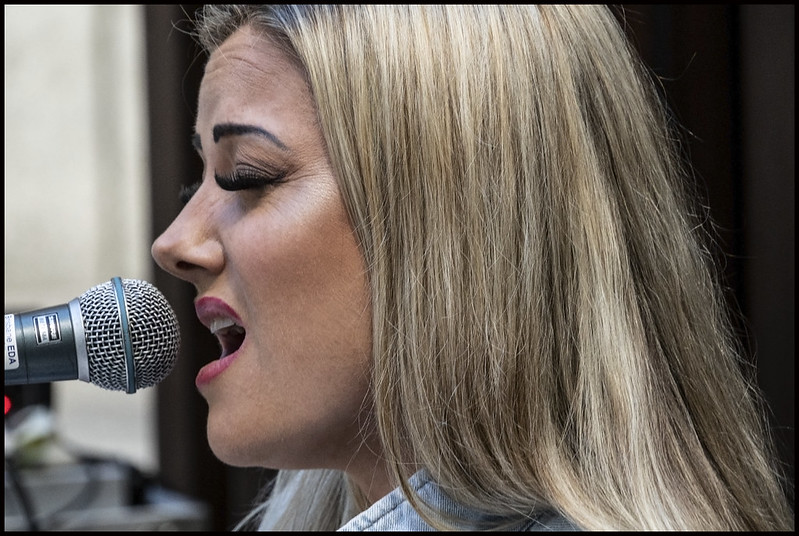
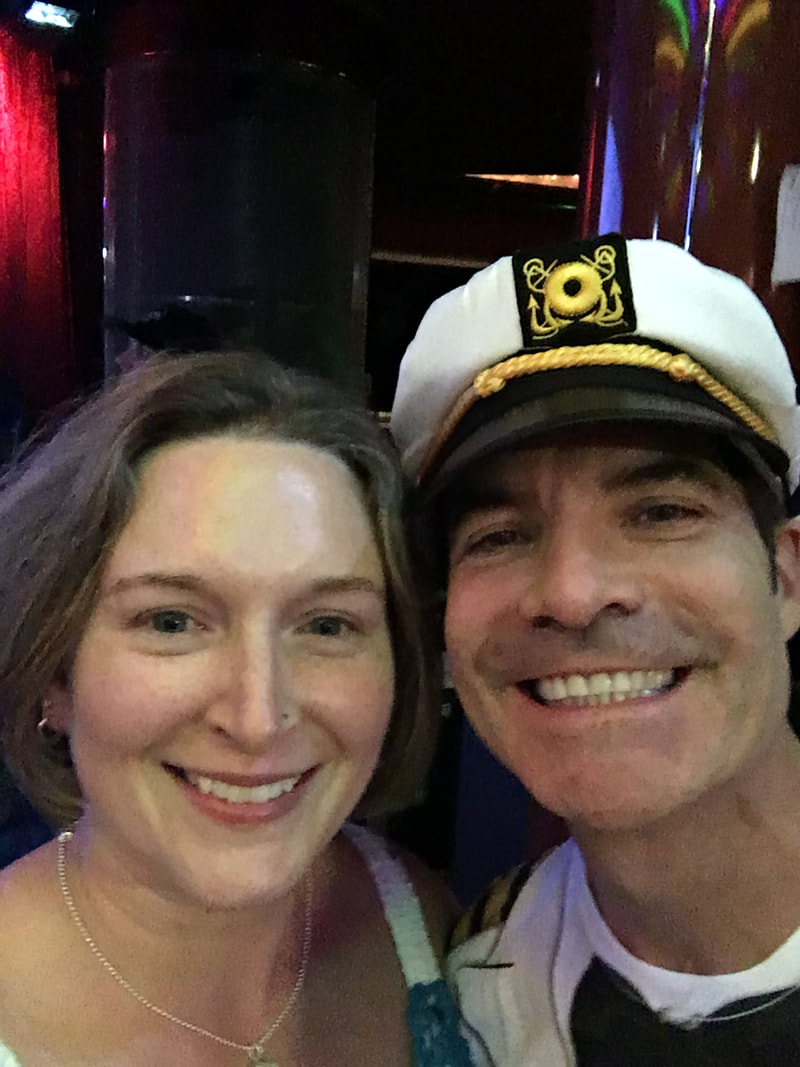
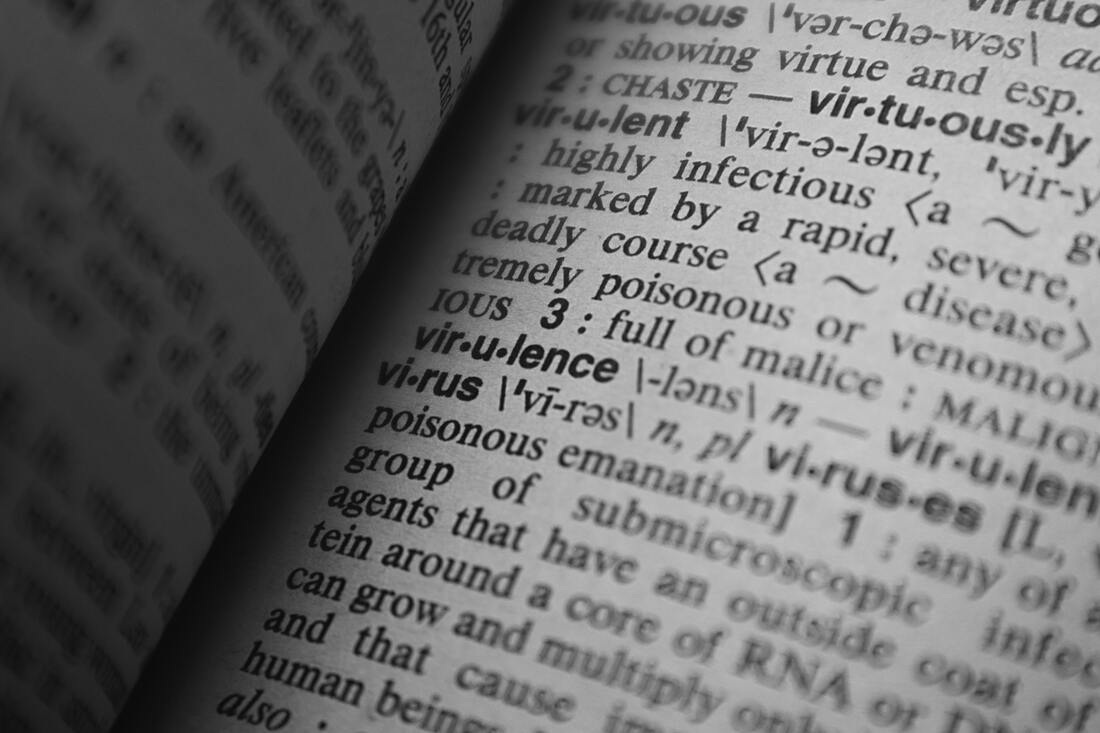
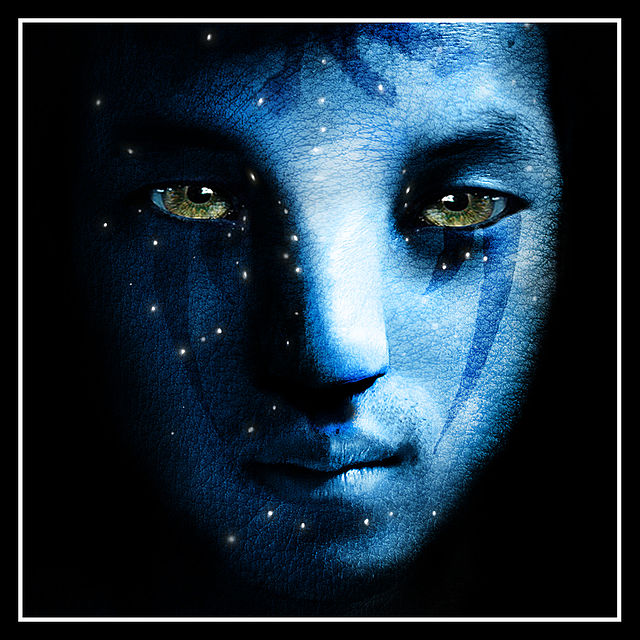
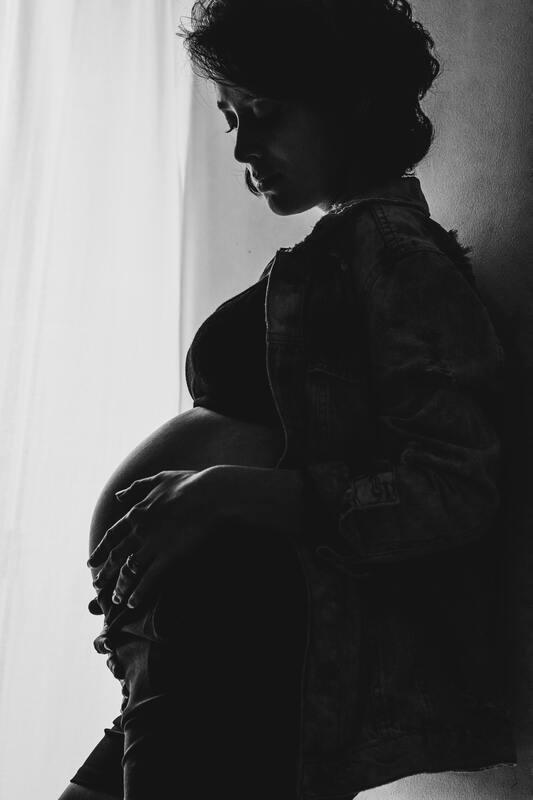
 RSS Feed
RSS Feed